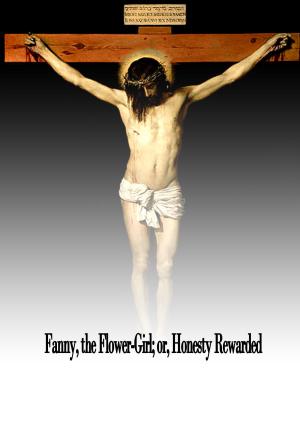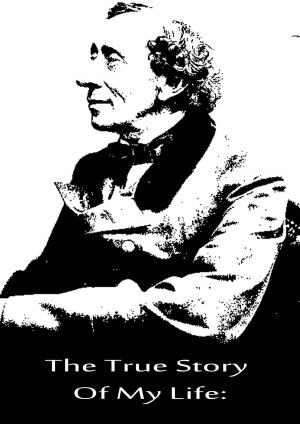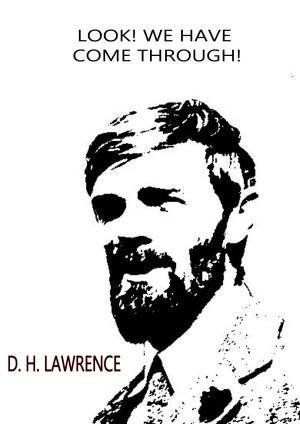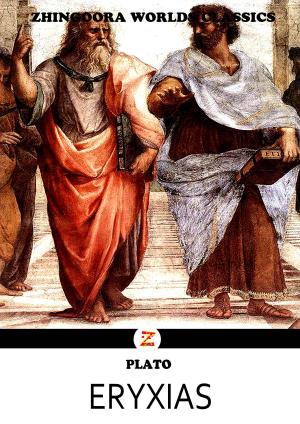| Author: | Francois Rabelais | ISBN: | 1230000036845 |
| Publisher: | Zhingoora Books | Publication: | December 5, 2012 |
| Imprint: | Language: | English |
| Author: | Francois Rabelais |
| ISBN: | 1230000036845 |
| Publisher: | Zhingoora Books |
| Publication: | December 5, 2012 |
| Imprint: | |
| Language: | English |
Christmas Summary Classics
This series contains summary of Classic books such as Emma, Arne, Arabian Nights, Pride and prejudice, Tower of London, Wealth of Nations etc. Each book is specially crafted after reading complete book in less than 30 pages. One who wants to get joy of book reading especially in very less time can go for it.
FRANCOIS RABELAIS
Gargantua and Pantagruel
Francois Rabelais was born at Seuillé in Touraine, France, about 1483. Brought up in a Franciscan convent, he was made a priest in 1520. During his monastic career he conceived a deep and lasting contempt for monkish life, and he obtained permission from the Pope to become a secular priest. He then studied medicine, and became a physician. After wandering about France for many years, he was appointed parish priest of Meudon in 1551, and he died at Paris in 1553. "The Great and Inestimable Chronicles of the Grand and Enormous Giant Gargantua" ("Les Grandes et Inestimables Chroniques du Grande et Enorme Géant Gargantua"), and its sequel, "Pantagruel," appeared between 1533 and 1564. Had these appeared during Rabelais' life, his career would probably have been shorter than it was, for the work is, with all its humour, a very bitter satire against both the Roman Church and the Calvinistic. Rabelais is one of the very great French writers and humourists whose work is closely connected with English literature. But what he borrowed from Sir Thomas More, he generously repaid to Shakespeare, Swift, and Sterne. The famous Abbey of Thelema is inspired by More's "Utopia"; on the other hand, Shakespeare's praise of debt is taken from the speech of Panurge--the most humorous character in French literature, and worthy to stand beside Falstaff.
Christmas Summary Classics
This series contains summary of Classic books such as Emma, Arne, Arabian Nights, Pride and prejudice, Tower of London, Wealth of Nations etc. Each book is specially crafted after reading complete book in less than 30 pages. One who wants to get joy of book reading especially in very less time can go for it.
FRANCOIS RABELAIS
Gargantua and Pantagruel
Francois Rabelais was born at Seuillé in Touraine, France, about 1483. Brought up in a Franciscan convent, he was made a priest in 1520. During his monastic career he conceived a deep and lasting contempt for monkish life, and he obtained permission from the Pope to become a secular priest. He then studied medicine, and became a physician. After wandering about France for many years, he was appointed parish priest of Meudon in 1551, and he died at Paris in 1553. "The Great and Inestimable Chronicles of the Grand and Enormous Giant Gargantua" ("Les Grandes et Inestimables Chroniques du Grande et Enorme Géant Gargantua"), and its sequel, "Pantagruel," appeared between 1533 and 1564. Had these appeared during Rabelais' life, his career would probably have been shorter than it was, for the work is, with all its humour, a very bitter satire against both the Roman Church and the Calvinistic. Rabelais is one of the very great French writers and humourists whose work is closely connected with English literature. But what he borrowed from Sir Thomas More, he generously repaid to Shakespeare, Swift, and Sterne. The famous Abbey of Thelema is inspired by More's "Utopia"; on the other hand, Shakespeare's praise of debt is taken from the speech of Panurge--the most humorous character in French literature, and worthy to stand beside Falstaff.
![Cover of the book Gargantua and Pantagruel [Christmas Summary Classics] by Francois Rabelais, Zhingoora Books](https://www.kuoky.com/images/2012/december/500x500/1230000036845-LyLw_500x.jpg)
![Cover of the book Christmas Sunshine [Christmas Summary Classics] by Francois Rabelais](https://www.kuoky.com/images/2012/october/300x300/1230000024187-1LBG_300x.jpg)



![Cover of the book Life of Byron [Christmas Summary Classics] by Francois Rabelais](https://www.kuoky.com/images/2012/november/300x300/1230000034595-BJ3U_300x.jpg)







![Cover of the book Tom Brown's Schooldays [Christmas Summary Classics] by Francois Rabelais](https://www.kuoky.com/images/2012/december/300x300/1230000036889-77M2_300x.jpg)
![Cover of the book Mauprat [Christmas Summary Classics] by Francois Rabelais](https://www.kuoky.com/images/2012/december/300x300/1230000036861-6e8I_300x.jpg)
![Cover of the book Sense And Sensibility [Christmas Summary Classics] by Francois Rabelais](https://www.kuoky.com/images/2012/november/300x300/1230000032312-xJrL_300x.jpg)